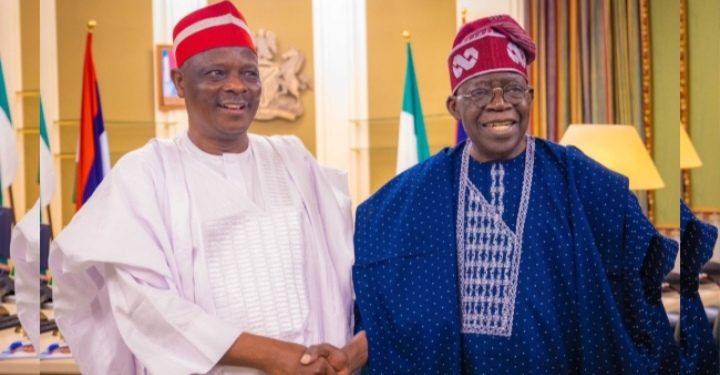In a bold and unequivocal statement, Buba Galadima, a prominent chieftain of the New Nigeria People’s Party (NNPP), has emphatically shut down any and all speculation regarding a potential political alliance between his party’s leader, Rabiu Musa Kwankwaso, and President Bola Tinubu’s All Progressives Congress (APC) in the lead-up to the 2027 general elections. Speaking with striking candor on Channels Television’s Politics Today, Galadima made it clear that the NNPP is not looking to play second fiddle. Instead, he asserted with absolute confidence that the NNPP will be the decisive force in shaping Nigeria’s political landscape, not the other way around.
“We are the people who will determine who will be the President of Nigeria in 2027,” Galadima declared, leaving no room for ambiguity. This powerful claim stands in stark contrast to the persistent rumors suggesting a political handshake between the two formidable leaders. Galadima’s remarks painted a picture of two political entities on opposite ends of a power struggle, with the NNPP viewing the current administration’s actions as hostile and destabilizing, particularly within the crucial political battleground of Kano State.
Galadima’s reasoning for this firm stance is rooted in what he perceives as a deliberate campaign by the Tinubu administration to undermine the NNPP’s authority and influence in Kano. He pointed to the contentious Kano emirate tussle as a prime example of the APC’s alleged political machinations. In a detailed and critical breakdown, Galadima accused the federal government of actively working against the interests of Kwankwaso and the NNPP by providing federal security backing to the reinstated Emir, Aminu Ado-Bayero. This move, he argued, directly counters the authority of the democratically elected NNPP government in Kano, led by Governor Abba Kabir Yusuf, who had legally removed Emir Bayero and reinstated Muhammadu Sanusi II.
The chieftain’s frustration was palpable as he questioned the federal government’s involvement in a matter he believes falls squarely under state jurisdiction. “How can Kwankwaso be friends with the APC after what they are doing to us in Kano? Appointing two emirs in one town, backing one with federal security while the state recognises another? Is it the duty of the Federal Government to appoint and pay emirs?” he challenged, highlighting the perceived overreach and misuse of federal power for political ends.
Going further, Galadima criticized what he described as a disproportionate and unnecessary show of force in Kano. He alleged that the heavy deployment of security operatives to guard Emir Bayero was a misallocation of vital resources. According to Galadima, this excessive security presence meant that police resources in the state were being misused and diverted, leaving other communities vulnerable to insecurity. He framed this action not as a measure to maintain peace, but as a calculated political tactic.
Galadima’s critique didn’t stop there. He contended that the federal government, through the police and the courts, was actively attempting to destabilize the revered Kano emirate, all for the sake of political advantage in the run-up to the 2027 elections. He drew a sharp contrast to a past where, he claimed, it was Tinubu himself who had advocated for Sanusi’s enthronement as emir. “Was it not Tinubu who canvassed for Sanusi to become emir? Let him deny it, and I will provide instances,” Galadima asserted, suggesting a hypocrisy at the heart of the current administration’s stance.
According to Galadima, the federal government’s backing of Bayero is not born of a commitment to tradition or law but is a cynical, purely political move. The expectation, he believes, is that Bayero could be used as a political pawn to help the APC consolidate its support base and secure a significant advantage in Kano during the next election cycle.
Galadima concluded with a forceful defense of Kwankwaso’s political integrity and independence. He stressed that Kwankwaso has not held any discussions about aligning with or supporting Tinubu or the APC. He challenged anyone to prove otherwise, stating that as a close associate, he would be privy to such information. “Let anybody come out and say Kwankwaso has agreed to join the APC. If such talks happened, I would know,” he said. He ended by re-emphasizing Kwankwaso’s political strength and resilience, labeling him as the “strongest political iroko in this country today because he dared the APC and defeated them in Kano.” Galadima’s comments serve as a clear and powerful message: the NNPP is not for sale, and its political path will be determined by its own leaders, not by the whims of the ruling party.


